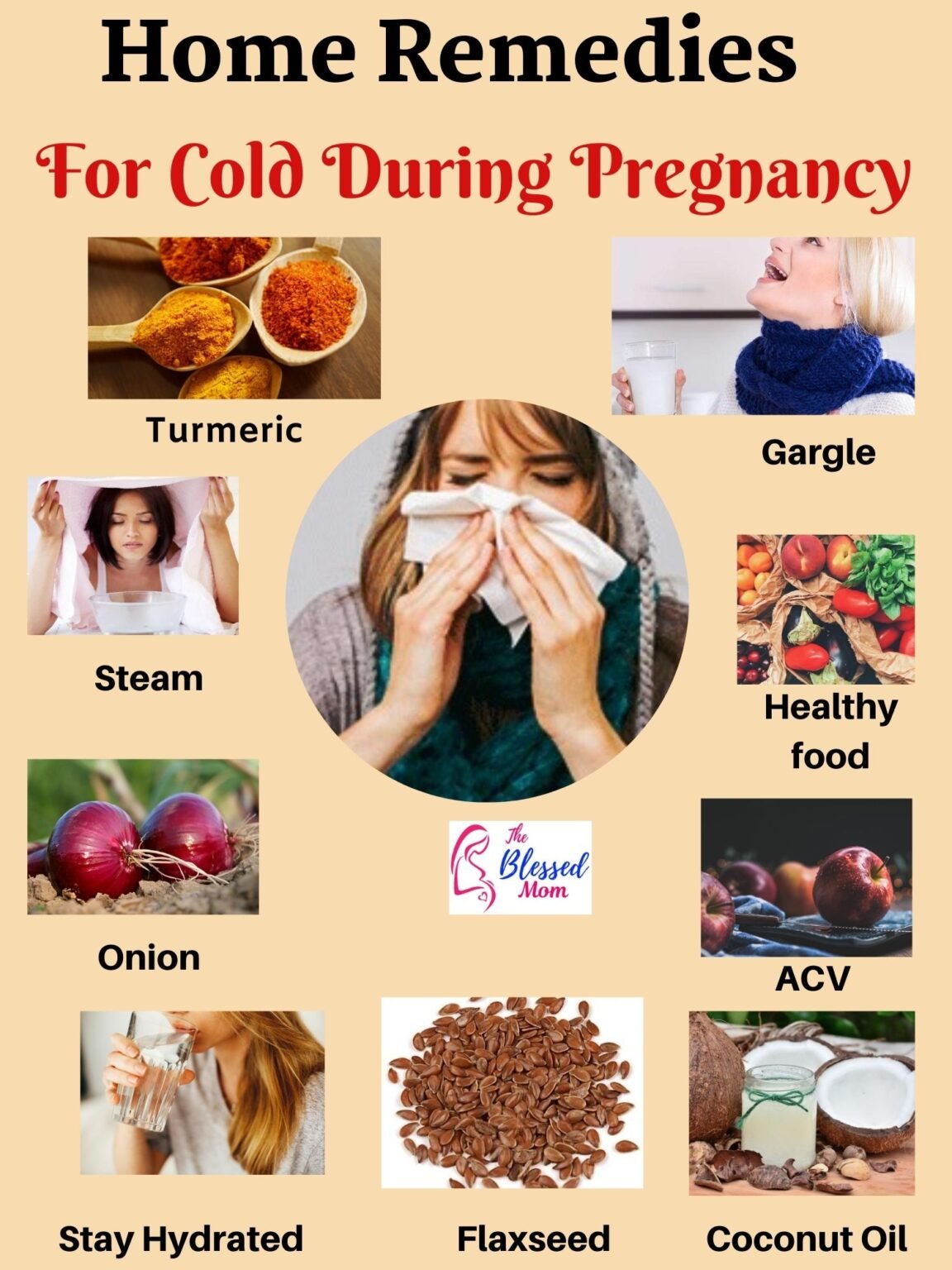Discover the Best Home Remedy for Cold and Cough During Pregnancy: Experience relief from pregnancy-related cold and cough using safe, natural remedies that promote well-being for both mother and baby. Learn how to harness the power of traditional wisdom, herbs, and lifestyle changes to soothe these common ailments without compromising your health.
Key Takeaways:
- Get adequate rest.
- Stay well-hydrated.
- Gargle with warm salt water for throat and cough relief.
- Use saline nasal solutions to clear nasal congestion.
- Make and consume homemade chicken soup.
- Utilize ginger for its therapeutic effects.
- Incorporate turmeric into your diet.
- Drink more fluids.
- Employ a humidifier to improve air quality.
- Sip honey in hot water for soothing properties.
Best Home Remedy for Cold and Cough During Pregnancy

Navigating a cold or cough during pregnancy can be a daunting experience. Over-the-counter medications may not be an option, leaving you searching for safe and effective remedies. Here’s a guide to the best home remedy for cold and cough during pregnancy:
1. Rest and Hydration:
- Prioritize rest, allowing your body to heal and fight the infection.
- Drink plenty of fluids, such as water, herbal teas, and broth, to stay hydrated and thin mucus.
2. Saline Nasal Drops or Sprays:
- Use saline nasal drops or sprays to loosen nasal mucus and relieve congestion.
- These over-the-counter remedies are safe and effective during pregnancy.
3. Homemade Chicken Soup:
- Chicken soup has been used for centuries to soothe cold and flu symptoms.
- The warm broth and vegetables help thin mucus, reduce inflammation, and boost the immune system.
4. Ginger and Turmeric:
- Ginger has anti-inflammatory properties that can relieve a sore throat and cough.
- Turmeric contains curcumin, a powerful antioxidant with anti-inflammatory and antiviral effects.
5. Honey and Warm Water:
- A spoonful of honey in warm water can soothe a sore throat and suppress coughing.
- Honey is also a natural antibacterial agent.
6. Humidifier:
- Use a humidifier to add moisture to the air, thinning mucus and easing congestion.
7. Steam Inhalation:
- Inhale steam from a hot shower or boil a pot of water and cover your head with a towel to create a “steam tent.”
- The steam helps loosen mucus and reduce inflammation.
Remember: Always consult your healthcare provider before using any home remedies, especially during pregnancy. While natural remedies can be helpful, it’s crucial to prioritize your and your baby’s well-being.
Smooth and silky hair is a dream for many, but it can be difficult to achieve. If you’re looking for a natural way to improve the health of your hair, you may want to try some of the best home remedies for smooth and silky hair.
An abscessed tooth can be a painful experience, but there are some simple home remedies that can help to relieve the pain. One of the most effective remedies is to apply a warm compress to the affected area. If you’re looking for a more natural way to relieve the pain, you may want to try some of the best home remedy for abscess tooth pain.
Canker sores are small, painful ulcers that can appear on the tongue, gums, or inside of the cheeks. While they are not serious, they can be very uncomfortable. If you’re looking for a way to relieve the pain of a canker sore, you may want to try some of the best home remedy for canker sore on tongue.
Soothing Herbal Teas to Calm Cough
Introduction:
When a cough strikes during pregnancy, finding safe and effective remedies is essential. Soothing herbal teas offer a gentle and natural approach to alleviating cough symptoms without compromising your well-being.
Key Takeaways:
– Hot teas help soothe coughs by loosening mucus and preventing dehydration.
– Look for teas with ingredients known to calm coughs, such as ginger, honey, and thyme.
– Antioxidants and anti-inflammatory properties in tea may provide additional benefits.
Recommended Herbal Teas for Cough:
| Tea Type | Key Ingredients | Benefits |
|---|---|---|
| Ginger Tea | Ginger root | Anti-inflammatory, soothes sore throats |
| Honey Lemon Tea | Honey, lemon | Antibacterial, soothes coughs, boosts immunity |
| Thyme Tea | Thyme leaves | Expectorant, relieves congestion |
| Chamomile Tea | Chamomile flowers | Calming, reduces inflammation |
How to Prepare Soothing Herbal Teas:
- Use fresh ingredients or high-quality tea bags.
- Steep herbs in hot water for 5-10 minutes.
- Strain and add honey or lemon to taste, if desired.
Tips:
- Drink hot teas for maximum effectiveness.
- Try different tea blends to find what works best for you.
- Consult your healthcare provider before consuming any herbal teas, especially if you have any underlying conditions.
Citations:
– Healthline: Tea for a Cough
– Real Simple: 12 Healing Types of Tea to Drink When You Have a Cough
Lifestyle Modifications for Symptom Relief
As you navigate pregnancy, you may experience occasional colds and coughs. While your instinct may be to reach for over-the-counter medications, there are several lifestyle modifications you can make to relieve symptoms naturally:
Hydrate Well
Staying hydrated is crucial to thin mucus and prevent dehydration. Drink plenty of fluids, especially water and herbal teas.
Get Restful Sleep
Rest is essential for healing and recovery. Aim for at least 8 hours of quality sleep per night.
Humidify the Air
Add moisture to the air using a humidifier or take a hot shower. Steam helps loosen mucus and reduce congestion.
Other Helpful Tips
- Gargle with salt water to soothe sore throats.
- Consume garlic and onion for their antibacterial and anti-inflammatory properties.
- Elevate your head with pillows while sleeping to promote sinus drainage.
Key Takeaways:
- Prioritize hydration with water and herbal teas.
- Rest well to support your immune system.
- Humidify the air to ease congestion.
- Incorporate natural remedies like salt water gargles and garlic consumption.
Citations:
- 9 Home Remedies for Cold & Cough During Pregnancy
- 15 Efficient Indian Home Remedies for Cold during Pregnancy
When to Seek Medical Attention
Cold and cough during pregnancy are common, but they can be uncomfortable and concerning. While home remedies can often provide relief, it’s important to know when to seek medical attention.
Key Takeaways:
- Fever over 101°F: Consult a doctor promptly.
- Persistent cough: A cough that lasts more than a week or produces thick, yellow-green mucus may require antibiotics.
- Difficulty breathing: Shortness of breath or chest pain should not be ignored.
- Severe sore throat: Inability to swallow or extreme discomfort indicates an urgent need for medical care.
If you experience any of the above symptoms, contact your healthcare provider immediately.
FAQ
Q1: What are the best home remedies for cold and cough during pregnancy?
A1: Some effective home remedies for cold and cough during pregnancy include gargling with salt water, drinking plenty of fluids, inhaling steam, and applying a warm compress to the forehead.
Q2: What causes cold and cough during pregnancy?
A2: Cold and cough during pregnancy are typically caused by viral infections of the upper respiratory tract, such as the nose, throat, sinuses, and upper airways.
Q3: What are the symptoms of cold and cough during pregnancy?
A3: Symptoms of cold and cough during pregnancy may include a runny nose, cough, sore throat, headache, sneezing, fatigue, and mild fever.
Q4: When should I see a doctor for cold and cough during pregnancy?
A4: It’s important to see a doctor if you experience a fever over 101°F, a productive cough lasting more than a week, severe sore throat or difficulty swallowing, shortness of breath, or chest pain during pregnancy.
Q5: How can I prevent cold and cough during pregnancy?
A5: While it’s not always possible to prevent cold and cough during pregnancy, some preventive measures include avoiding exposure to sick individuals, washing hands frequently, getting adequate rest, and maintaining a healthy immune system through a nutritious diet and regular exercise.
- Best Finish for Butcher Block Countertops: Choosing the Right Option - December 30, 2025
- Seal for butcher block: Find the best food-safe finish - December 29, 2025
- Finishes For Butcher Block Counters: Choosing The Right Food-Safe Option - December 28, 2025










